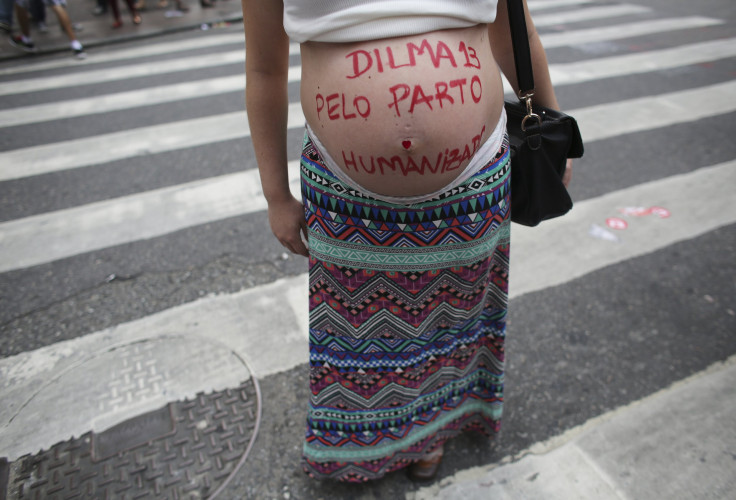Mothers Stressed Out From Racial Discrimination Transfer Their Stress To Newborns

A little bit of stress is normal. But too much, and at a vulnerable time, can lead to long-lasting problems that cut across generations. A new study from the University of Colorado Denver has found the stress that comes with racial discrimination during a woman’s pregnancy may get passed on to her newborn child.
A solid amount of evidence already exists to support stress as not just a temporary frustration, but as a force capable of changing our genes — particularly if the stress is chronic. Severely stressed-out teenagers, for example, face a greater risk of mental illness in adulthood because of how the stress affects their genes. The effect comes from the hormone cortisol. The longer it stays in your body, the more your body begins to adjust to the new normal of constant stress, and it breaks down.
"Many people think that ethnic discrimination only has psychological impacts," said Dr. Zaneta Thayer, lead author of the study and assistant professor of anthropology, in a statement. Early last year, Thayer alongside her colleague Christopher Kuzawa conducted a similar study that found material deprivation — having fewer luxuries in life — predicted maternal and infant cortisol levels. For the latest study, the team turned toward racial bias, which they found "can impact physical health as well, possibly through changes in stress physiology functioning."
Thayer and Kuzawa performed their small study on 64 pregnant women of various ethnic backgrounds in Auckland, New Zealand. They questioned the women about recent times they felt discriminated against because of their ethnicity, before collecting saliva samples to check cortisol levels. One-third of the women said they had faced some form of discrimination, to which the team uncovered an association to elevated cortisol levels. When they swabbed the same women’s newborn infants, they found many of the same increases.
"To our knowledge this is the first study to report an association between maternal ethnic discrimination and maternal stress physiology in pregnancy or with stress in infancy," Thayer said.
What researchers still need to investigate is whether specific forms of stress change infant cortisol levels more than others. Without being able to compare racial discrimination to other factors, such as pregnancy-related stresses or family history, researchers can’t know whether racial discrimination is doing the heavy lifting in predicting infant stress. Departing from their previous study, however, Thayer and Kuzawa did control for material deprivation, which means socioeconomic status was irrelevant.
Women should see the findings as further evidence that what happens outside the womb can leave lasting impacts on a growing fetus. Playing Mozart and speaking in soothing voices may not be the direct cause of a happy and healthy baby, but science is finding the thought is what counts. Now racial bias can get lumped into the mix, Thayer says.
"The finding that offspring of women who experienced ethnic discrimination had greater cortisol reactivity in early infancy,” she said, “adds to the growing evidence that a woman's emotional, physical, and mental well-being, during or around the time of pregnancy can influence the biology of her child."
Source: Thayer Z, Kuzawa C. Ethnic Discrimination Predicts Poor Self-rated Health and Cortisol in Pregnancy: Insights from New Zealand. Social Science & Medicine. 2015.



























